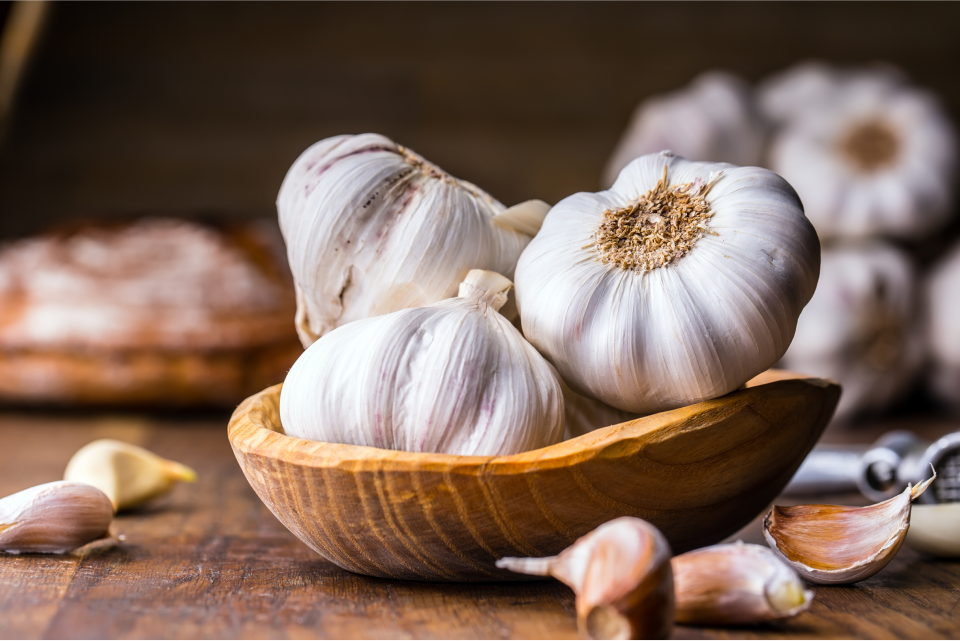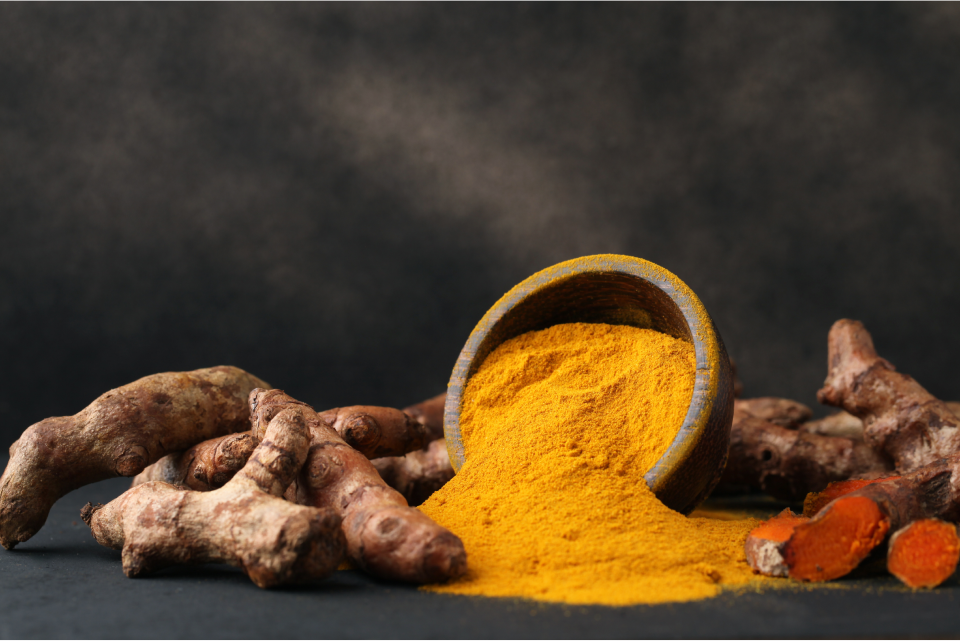15 Superfoods that Naturally Detox the Liver

The liver is a very significant organ for a variety of reasons; it performs multiple tasks to keep our systems running smoothly, including metabolism of fats, proteins, and carbohydrates, enzyme activation, and bile production.
The liver is the body's largest solid organ. And a healthy liver removes toxins from the body's blood supply. Plus, our liver regulates blood sugar levels and blood clotting, and performs hundreds of other vital functions every day––discreetly housed just beneath the rib cage in the right upper abdomen.
Unfortunately, when the liver becomes unresponsive, you may experience nausea and itching, as well as a lack of appetite. The dysfunction can progress to jaundice, vomiting blood, dark, tarry stools, oedema, and ascites, which are signs that disease is progressing.
Fortunately, the liver is incredibly resilient and capable of regeneration. However, some liver cells are lost in the process of filtering alcohol. And long-term misuse––drinking too much over a long period of time––can cause the liver to lose its ability to regenerate new cells.
Thankfully, we don't need to resort to harsh medicines to improve liver health. Fortunately, diet plays a significant role in how well this organ functions, and we can better support liver performance with every well-planned meal.
There are several superfoods that are perfectly suited to detoxifying and effectively cleansing the liver, ensuring the master filter is fully functional. And we’ll share these prime picks below to help you fill your pantry and fridge with liver-boosting fare to set you up for success.
The Nature of the Liver
Anger is said to be the emotion of the liver. So, consider this: experiencing unexplained stubborn weight that you can't seem to lose? Is your mood fuse shorter and easier to ignite lately? If so, your liver is likely overloaded and overworked, raging and crying out for relief.
However, there’s no need for alarm. A cellular cleanse will reset and reboot the organ so that it can perform optimally again.
The following superfoods will detox your liver to reset and maintain peak performance, one tasty sip and bite at a time:
#1 Begin the day with lemon water.
Add one whole, preferably organic, lemon to 16 ounces (two cups) of water and drink this mixture before doing anything else––even prior to downing your coveted cup of morning coffee.
Lemon activates detoxifying enzymes, like alkaline phosphatase (ALP), alanine transaminase (ALT), aspartate transaminase (AST), or Gamma-glutamyl transferase (GGT), in our liver that accelerates chemical reactions in your body and gets our metabolism revved up for the day.
Also, oranges, lemons, limes, and tangerines contain high levels of vitamin C, which protects your liver. Moreover, citrus fruits aid in the detoxification process and stimulate the liver to produce the enzymes it needs, as shared above, to function at its full potential.

It's a wise idea to ease into eating after resting overnight. In the morning, start your day with water-rich fare like fresh berries or a phytonutrient-dense smoothie so the liver can wake up, and handle any of its many other functions than producing bile to metabolize fat, to filter and cleanse the blood and body, and get ready to purify the many environmental and dietary toxins it will surely encounter.
#2 Asparagus.
These spears are crisp and beautifully bold in flavor when caramelized or roasted. They’re the perfect side for any healthy entree, but these green stalks also provide loads of nutrients and detox agents to help keep our systems well cleansed.
Plus, their diuretic properties aid in the cleansing process by activating the functions of the liver and kidneys to flush out toxins.

Furthermore, asparagus contains glutathione, a potent antioxidant that facilitates detoxification. Plus, this veggie is also an excellent source of fiber, folate, iron, and vitamins A, C, E, and K, while being especially beneficial to those with high blood pressure.
Moreover, asparagus is also known to help trigger the natural self-cleaning functions of the kidney and bladder.
#3 Apples.
It’s long been said that an apple a day keeps the doctor away, and this is likely linked to its polyphenol content—naturally keeping liver serum and lipid levels balanced.
Plus, the high fiber content in apples is a bonus for those with fatty liver disease or looking to achieve greater levels of satiety to battle the bulge and banish obesity.

Some preliminary research even points to some enzymes in Fuji apples providing additional benefits to prevent heart and liver damage by reducing blood cholesterol levels and enhancing liver enzyme markers—potentially also improving glucose metabolism to balance blood sugar and insulin levels for a boost to metabolic health, further facilitating effortless weight loss.
Moreover, apples are rich in fiber pectin and help detox heavy metals and other food preservatives and additives from your body—especially Granny Smith apples, shown to promote the proliferation of healthy bacteria in the colon; just make sure to eat the skin to yield the most benefits!
#4 Brussels Sprouts.
While these bulbous sprouts are simply divine roasted in grass-fed butter and topped with a sprinkle of kosher salt, they also provide some amazing liver-boosting benefits.

Similar to other nutrient-dense cruciferous veggies, like broccoli and cauliflower, Brussels sprouts promote improved liver detoxification enzymes, naturally, to protect it from injury and increase blood levels of your body’s liver enzymes.
Plus, exciting emerging research from a study conducted at Texas A&M reveals that indole, a natural compound found in cruciferous vegetables like broccoli, cauliflower, Brussels sprouts and kale, can combat and prevent fatty liver disease.
Most importantly, Brussels sprouts fall into the Brassica oleracea family of cruciferous veggies, along with other beloved selections like broccoli, cauliflower, cabbage, kale, and collard greens, that contain a sulfur-containing phytochemical called glucosinolate, which is responsible for their distinctive odor and bitter flavor, and aids in flushing out the liver.
#5 Green Tea.
Green tea is rich in the potent antioxidant catechin, also called epigallocatechin-3-gallate (EGCG). Catechins are natural antioxidants that thwart cell damage, along with other benefits.

These flavonoids can assist in supporting liver health in several ways, in part by reducing the formation of free radicals in the body, shielding cells and molecules from damage.
Pour boiling—not just hot—water over a bag of organic green tea and let it sit covered for 10 minutes, to steep before drinking, to maximize its liver-boosting benefits.
Consider enjoying any of these tease for a boost of liver-calming catechins, listed in descending order of catechins level:
- Kaihua Longding (green)
- Zhenghe Baimudan (white)
- Fuding Premium Silver Needles (white)
- Zhenghe Silver Needles (white)
- Huangshan Maofeng (green)
- Dinggu Dafang (green)
- Fuding Baimudan (white)
- Bashan Queshe (green)
- Mingshan Shihua (green)
- Tianshan Yinya (green)
- Wuyuan Mingmei (green)
- Biluochun (green)
- Sencha (green)
- Uji/Yeme Gyokuro (green)
- Xihu Longjing (green)
- Linhai Panhao (green)
- Mengding Ganlu (green)
- Anji Baicha (4) (green)
#6 Garlic.
Adding minced bits into sauces and stews take tastes to extraordinary heights, but garlic also packs a powerful punch in the area of liver detoxification.
Garlic contains a mineral called selenium, along with potent sulfur compounds, that can cleanse the liver and trigger liver enzymes to naturally flush out the toxins from your body, while cleansing the arteries.

Moreover, garlic contains significant concentrations of compounds like allicin and selenium which helps safeguard the liver from any toxic injury.
Besides, garlic may even improve blood lipid levels and aid in regulating blood sugar levels, as well as lavishing the liver in a refreshing cleansing.
Further, a combination of the sulfur compound allicin and mineral selenium in garlic activates liver enzymes, preventing or improving symptoms of conditions such as alcoholic liver disease, nonalcoholic fatty liver disease, drug-induced liver injury, infection, autoimmune liver disease, fibrogenic liver disorders, and cancer of the liver.
#7 Turmeric & Curcumin (anti-inflammatory, antioxidant).
Several recent studies suggest that turmeric, more specifically the compound curcumin within the root, further activated when paired with black pepper, plays a notable role in treating nonalcoholic fatty liver disease (NAFLD).

Among turmeric's curcuminoid constituents, curcumin is the most significant. Its biological activities are attributed to its compounds acting as free radical assassins, reducing lipid peroxidation caused by damaging elements to prevent inflammation and disease.
#8 Milk Thistle (tea or supplement).
Improve liver health by using milk thistle in tea or supplement form to detoxify the body by increasing liver, kidney and pancreatic function.

Herbalists hail silymarin, the primary active ingredient of the herb, an antioxidant compound taken from milk thistle seeds, as the therapeutic component responsible for supporting optimal liver function and helping repair damage done by fatty liver disorders.
#9 Black Radish.
Raphanus sativus niger, or Spanish black radish, belongs to the Brassicaceae family, also known as the cruciferous vegetable family. Among its many uses, it is beneficial for liver health, detoxification, digestion, lowering cholesterol, and boosting antioxidant activity.

Radishes contain various compounds, including indole-3-carbinol and 4-methylthio-3-butenyl-isothiocyanate, which boost liver detoxification and repair. In addition, these compounds help flush toxins from the kidneys.
#10 Beets.
The juice of beets stimulates liver enzymes and increases bile, which improves liver detoxification. Increased levels of betalain and other compounds found in these veggies, for example, decrease inflammation and protect against oxidative stress and liver injury––while stimulating liver enzymes and increasing bile production, which improves liver detoxification.

Plus, by purifying the blood, beets stimulate lymphatic flow, aid in increasing oxygen levels, and assist with cleansing in every way you can imagine. And as beets break down toxic wastes in the body, they help speed up the process of excretion.
#11 Dandelion.
Since ancient times, dandelion tea has been used in holistic medicine to support liver function. The dandelion increases bile flow, which helps cleanse the liver and relieve liver disease symptoms.

Further, the polysaccharides in Dandelion contribute to reducing stress on the liver and supporting its bile production. Furthermore, these leaves prevent your liver from being exposed to potentially harmful chemicals in your food.
#12 Kala Namak (black salt).
Antioxidants are present in black salt, and the sodium content is surprisingly low. It also contains essential minerals like iron, calcium, and magnesium, which are critical to maintaining healthy bodies.

Plus, if you experience digestive issues, black salt is a good ingredient to include in your regimen to help your liver make bile and improve the body's fat-soluble vitamin assimilation in the small intestine and helps control heartburn and bloating.
#13 Globe Artichoke (regenerates and protects liver cells).
Artichokes also eliminate toxins, cholesterol, xenobiotics, and other metabolites from the body to provide liver support and protection, and encourage normal body mass index (BMI), further lessening the risk of complications of a fatty liver.

Plus, liquid extracts of the roots and leaves of artichoke have shown the ability to shield the liver, possibly even helping to regenerate liver cells.
#14 Blueberries & Cranberries.
These colorful berries are rich in anthocyanins, antioxidants that harness inflammation and shield the liver from free-radical stress.
Plus, certain studies point to additional benefits noting that blueberries, as well as cranberries, shield against liver injury and lessen the risk of fibrosis.

And these vibrant berries bursting with flavor and nutrients are high in flavonoids, which have been linked to healthy liver function and detoxification.
#15 Dark Leafy Greens.
Kale, spinach, collards, and other dark leafy green veggies are abundant in powerful antioxidants that aid in eliminating toxins in the body. And eating a diet brimming with these powerhouse leaves and stalks operate in a symbiotic relationship with the liver to help purge your system of toxins.
Whether you enjoy your greens raw in salads, blended into smoothie, or sauteed with extra virgin olive oil, garlic, and a sprinkling of sea salt, incorporating more of these foods into your diet will provide added fiber and chlorophyll which effectively pull unwanted toxins from the liver and aid in purifying the blood.
Plus, phytonutrient-rich veggies like mustard and arugula greens contain a potent antioxidant called glutathione, which can aid in keeping your liver working in tip-top shape.

Implementing a well-crafted meal plan and leveraging dietary intervention are excellent approaches to improve and maintain optimal liver function. But it’s wise to note that losing weight is the single most effective way to control or reverse NAFLD.
To add perspective on the matter, losing 10% of your total body weight is a reasonable goal, but even losing 3% to 5% can improve liver health.
The Impact of Hydration on Liver Detox
Keeping a close eye on replenishing hydration levels aids in helping the liver filter as increased fluid levels thins blood slightly, making it easier for the liver to filter toxins from the body.
Plus, proper hydration assists the liver in filtering harmful substances from the body, a process hindered when the system is dehydrated––making it more difficult for the liver to process harsher elements such as alcohol, and environmental toxins, leaving you more at risk of poisoning.
Summary
Our liver is responsible for innumerable functions in the body, and keeping it primed for peak performance is essential to maintaining overall health. But we don’t just need to rely on harsh medicines and extreme measures to make a significant improvement in maintaining our body’s master filter.
As the old adage goes, you are what you eat. And composing your diet of foods that promote liver detox and health is a fantastic non-invasive approach to keep you looking and feeling your best, thanks to foods and beverages that provide a gentle daily detox to ensure optimal function and improved feelings of vigor and vitality.
Resources
- Werawatganon, D. (2017). Protective effects of curcumin on gastric inflammation and liver disease. Superfood and Functional Food - The Development of Superfoods and Their Roles as Medicine. https://doi.org/10.5772/66119
- Hofseth, L. J., & Hébert, J. R. (2022). Diet and acute and chronic, systemic, low-grade inflammation. Diet, Inflammation, and Health, 85–111. https://doi.org/10.1016/b978-0-12-822130-3.00011-9
- Dietary modulation of intestinal microbiota as trigger of liver health: Role of bile acids - "a diet for liver health". (2019). Case Medical Research. https://doi.org/10.31525/ct1-nct03897218
- Katoonizadeh, A. (2017). Liver regeneration. Liver Pathophysiology, 113–123. https://doi.org/10.1016/b978-0-12-804274-8.00007-2
- Ekesa, B. N. (2017). Selected superfoods and their derived Superdiets. Superfood and Functional Food - The Development of Superfoods and Their Roles as Medicine. https://doi.org/10.5772/67239










